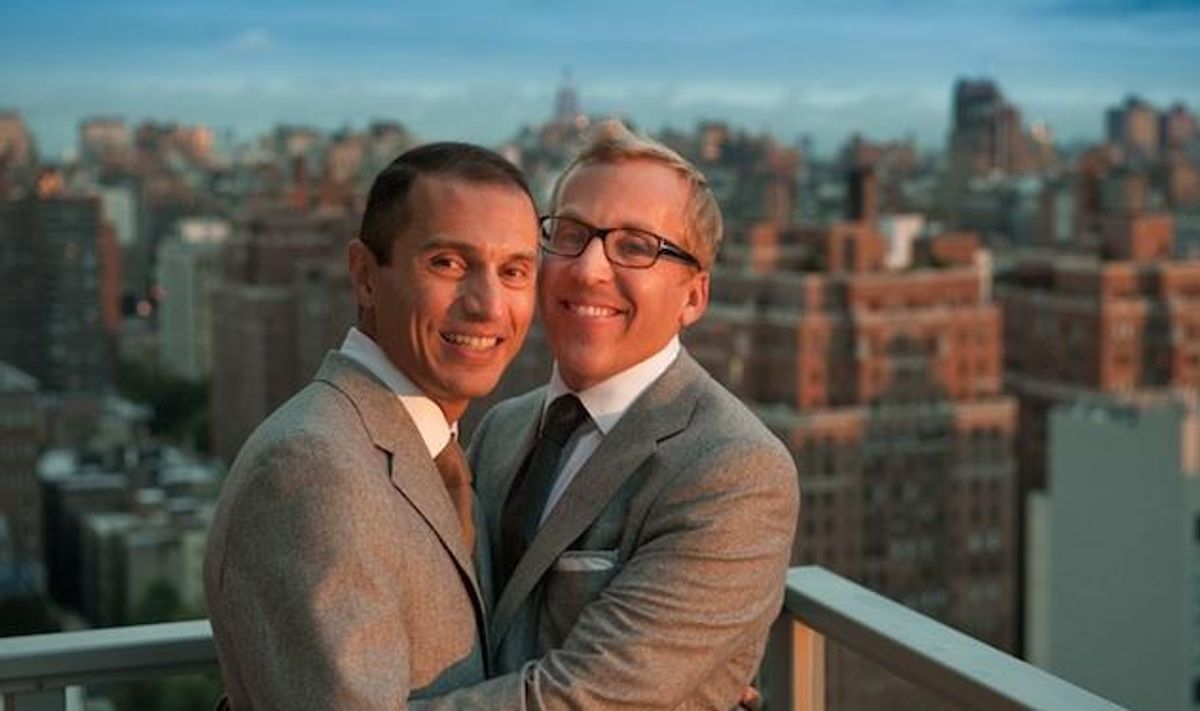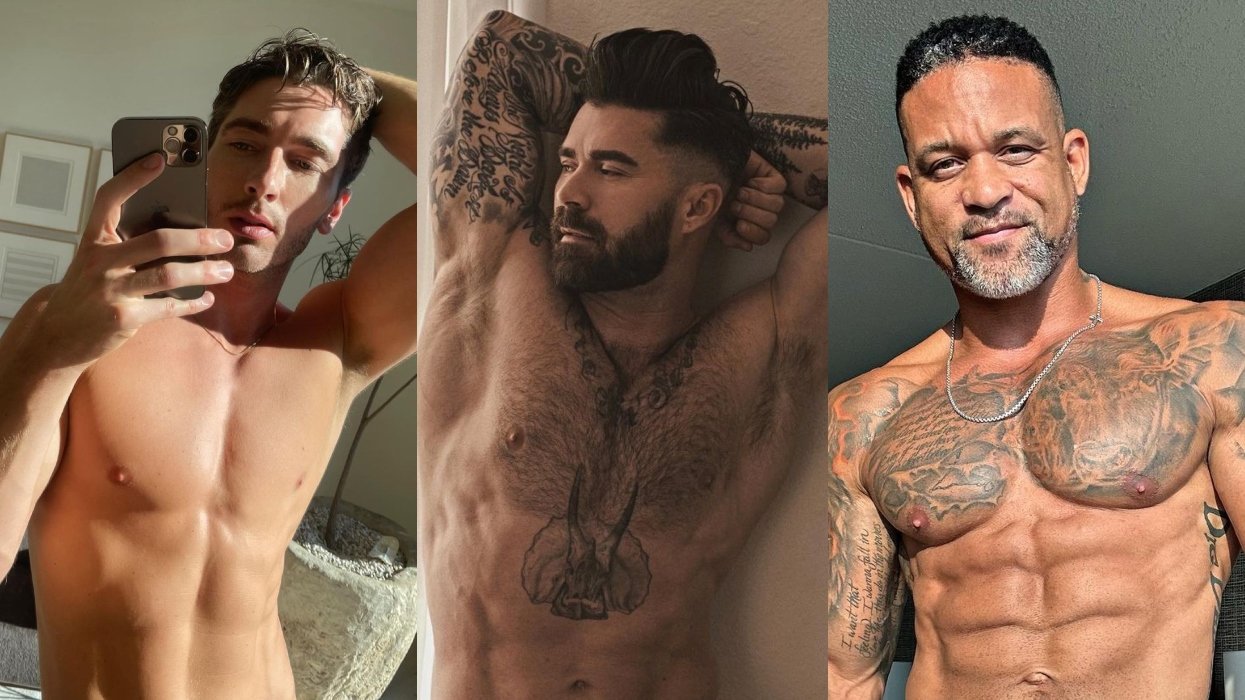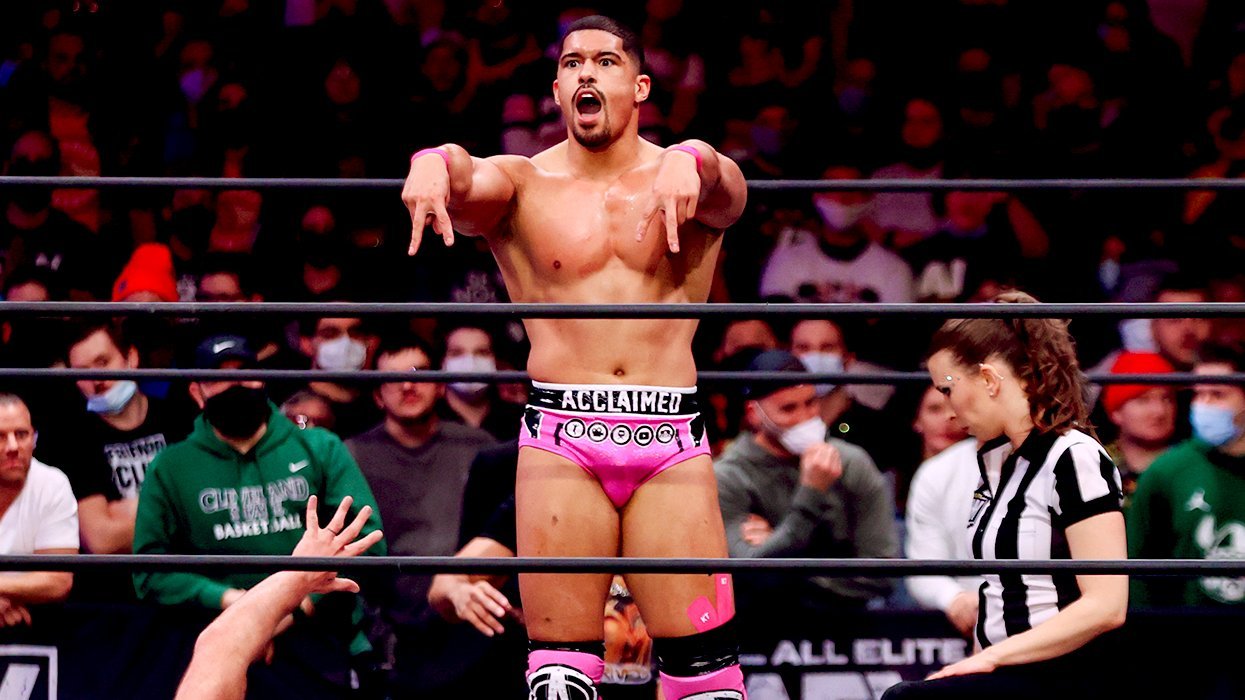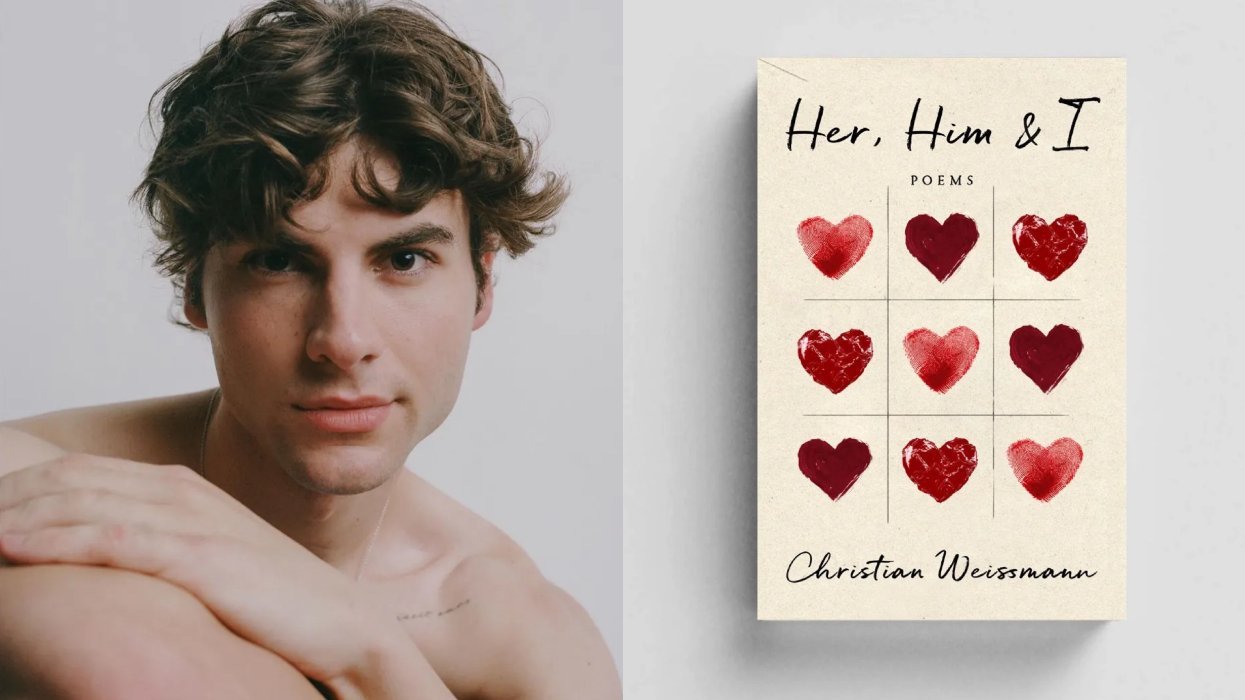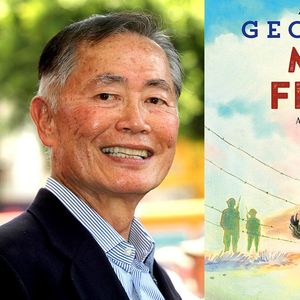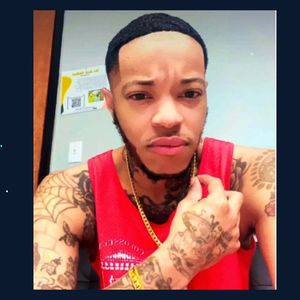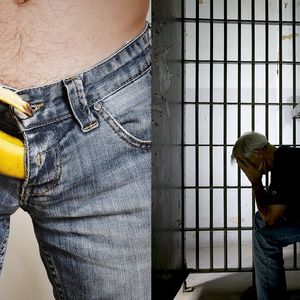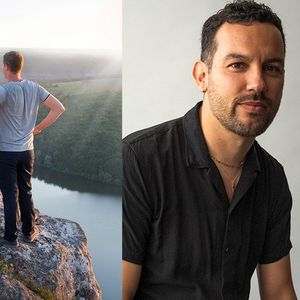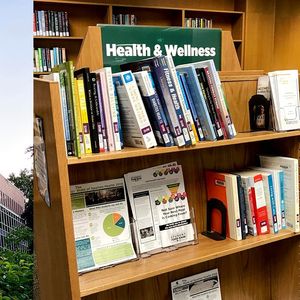Photo: Robert Norman Photography
Like any other happy newlywed, Dr. Isaac Namdar was excited to share the pictures of his wedding to his partner Andrew Mitchell with friends and family, so he set up a website for the guests to view them. Little did he know that the website would soon turn an entire community upside down. News of the website had spread through Namdar's tight-knit, ultra-conservative Orthodox Jewish Middle Eastern community and he was subsequently excommunicated from his synagogue and its entire congregation. Hoping to gain control of the situation, Namdar decided to give the hundreds of nosey visitors to the site a message board to share their thoughts. What he got was an incredible outpouring of support from those who wanted change and progress in their close-minded, conservative society.
"I am a firm believer in the fact that life is too short to deprive yourself of happiness for the sake of others, one contributor wrote. "Wish you and your partner best of luck and many happy and healthy years together." Soon, however, that message board turned into an opportunity for the entire community to openly speak about homosexuality as well as other problems that had been troubling many who felt forced to stay silent. We sat down to catch up with Dr. Namdar to discuss this striking look at community dynamics documented in his book In This Day and Age?!: A Community at the Crossroads of Religion and Homosexuality.
Out: After reading the book, I can't help but be amazed at your compassion. You even apologize to the rabbi and the community several times for having started "trouble." I don't think many others would have been able to do the same. I know if I were in your situation, I'd be angry and I'd probably be very vindictive. But you kept a level head, how did you manage?
Dr. Namdar: I don't how I did it, I guess I looked to a higher power. If I didn't get those early responders who emailed me and called to say we're here with you, I wouldn't have been able to do it. They gave me strength, the people who knew me directly gave me support. The community somehow always knows you, it is one big family kind of thing, there are always only two degrees of separation. They knew who how I was, not personally but they knew I was one of the handful of doctors, they were aware of that were in the community. Nobody made a point to contact me and harass me, all of it was anonymous--which is fine, freedom of speech, I guess. But I also think a more calm approach is just the progression of gay rights. If you think about Stonewall, it was first about aggression and lashing out, that was necessary at the time but now the gay rights movement is coming into maturity. It's time we relay our love.
Although the experience of being excommunicated must have been so hurtful, something really amazing came out of this: individuals in the community had the ability to voice their opinions and troubles when they previously felt they could not. The message board became a hotbed of conversation, one contributor even speaks up about being molested as a child by an older man in the community and another speaks about an abusive wife. Did you know all these things were boiling under the surface of the community?
Yes, absolutely! It's a kind of community where community comes first and individual voices are suppressed. Many good things came out of this, for me and for other people. People had the opportunity to talk openly and honestly. Now we can just be open about it. I've been able to bring Andrew to family events, we've even visited with my father in Israel together. We went as a couple and although my father wasn't exactly ecstatic about it, it really was a great step, a baby step though it was, for someone of that world. It is what it is. This experience has also given me the opportunity to speak all over the country, in San Francisco and at my alma mater Stony Brook. Some have even started coming out in the community, slowly but surely and I've been seeing them on a regular basis so we have our own little community going.
Middle Eastern society is notorious for being particularly homophobic, one thinks of Ahmadinejad's statement that "there are no gays in Iran", when in fact so many have been hung for the "crime". In fact, even in Saudi Arabia it is so common yet hidden that The Atlantic called it "The Kingdom In the Closet" back in 2007. Why do you think homosexuliaty is so taboo in the Middle East?
I think a good part of it is ignorance and prejudice, historically, that has been handed down from one generation to the next. Even if you are [gay], if you don't act on it and don't live an open lifestyle and embrace it, then it is acceptable in the Middle East. The stereotype was someone who was out because you were such a "super-duper flamer" that he couldn't hide it; he couldn't just marry a woman and pretend.
The Middle Eastern stereotype of the "gay," is so "gay," you can't absorb it and ignore it. Sometimes stupid is what stupid does! It's crazy the things that come out. They'll do things like compare homosexuality to bestiality all the time; they try to invoke some issue that is more universally grotesque but subject to debate, make you think of it in the same context as something unrelated.
It's a dirty trick and it's used all the time. It's the same as Nazi propaganda; they would show rats and Jews together in the same poster, as if to say they are both dirty, both worthy of death, we should kill them both. It is very upsetting. Procreating and making a family is so important to Middle Eastern society, but with adoption, surrogacy, and en vitro, now we can have families too, so hopefully things will change for the better.
Why did you feel the need to share your story?
Well, it's all about opening a discussion; the biggest part that we've been going through is lack of information, knowledge, empathy. The minute you put a face to homosexuality, as I am, you're doing your part to help the community understand--that's what really makes the difference. It's all about opening up and sharing your story. Since writing the book, I often get messages from people in a similar situation who I've helped come out. Its an important story to share I think.
In This Day and Age?!: A Community at the Crossroads of Religion and Homosexuality by Dr. Isaac Namdar is available here and at Amazon.
